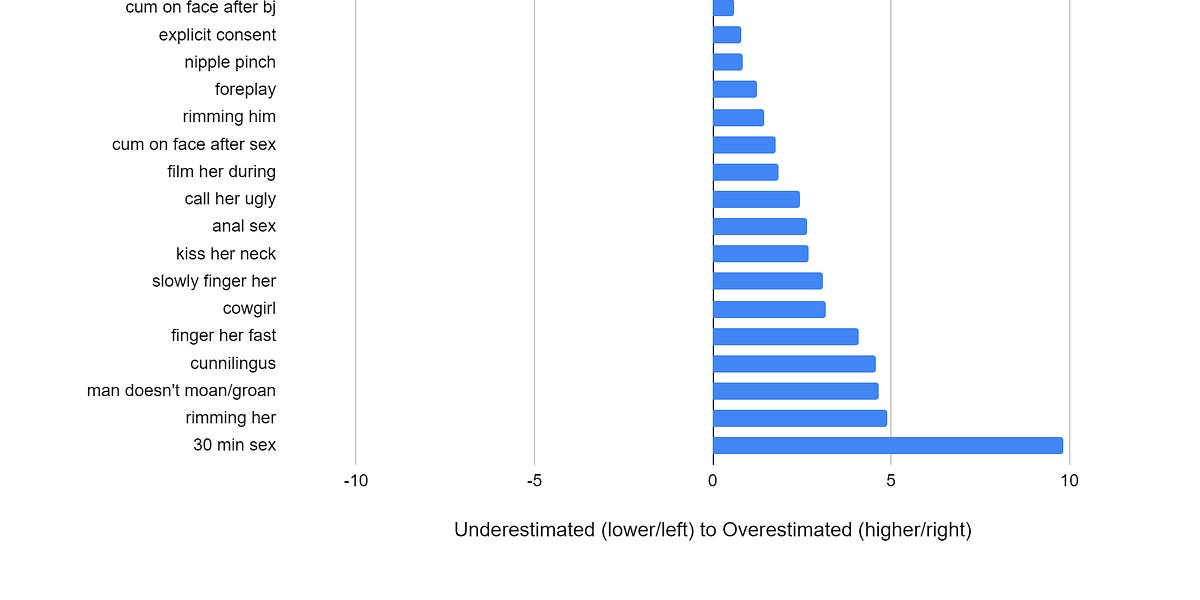
I'm doing a survey where I ask men to predict what women would like during sex (scenario given is third time having sex).
I then ask women "would you like it if a man tried this while having sex"
The list of things includes very normal/vanilla/gentle stuff, to absurd/rough stuff.
How do you predict men's ratings compare to women's, on average? Do men think women will be more into things than they are, less into things than they are, or roughly equivalent?
(threshhold of 'roughly equivalent' is under 5 points off, out of 100, all the questions averaged together)
Survey itself is here: https://www.guidedtrack.com/programs/cm5agrc/run
🏅 Top traders
| # | Name | Total profit |
|---|---|---|
| 1 | Ṁ3,732 | |
| 2 | Ṁ1,010 | |
| 3 | Ṁ597 | |
| 4 | Ṁ418 | |
| 5 | Ṁ402 |
Bit cheap to make this comment after the fact but I'm surprised "roughly accurate" was priced at only 14% as of this morning. It's not that hard to be within 5 percentage points in either direction. If you're guessing totally at random, you have a 10% chance* of being right within 5 percentage points, which isn't far off from 14%.
*I don't think this is exactly right because if the true answer is <5% or >95% then you have a worse chance, but it's pretty close to 10%.
Edit: I wrote a quick script to simulate and it looks like the probability is ~9.8%, assuming the true answer is uniformly distributed on [0, 100]. Probably not hard to calculate the answer numerically but I have programmer brain. I'm guessing it's 9.75%.
@MichaelDickens Yeah, I applied this logic a little bit, and made a very small profit, but when I saw the resolution I did notice that I wasn't surprised by the result, which probably means I should have moved the probability a bit higher.
It's probably good prediction technique to think "how surprised would I be with this result?". I might try to do it in future.
@MichaelDickens Plus stereotype accuracy is one of the most robust effects in the entire field of psychotherapy
